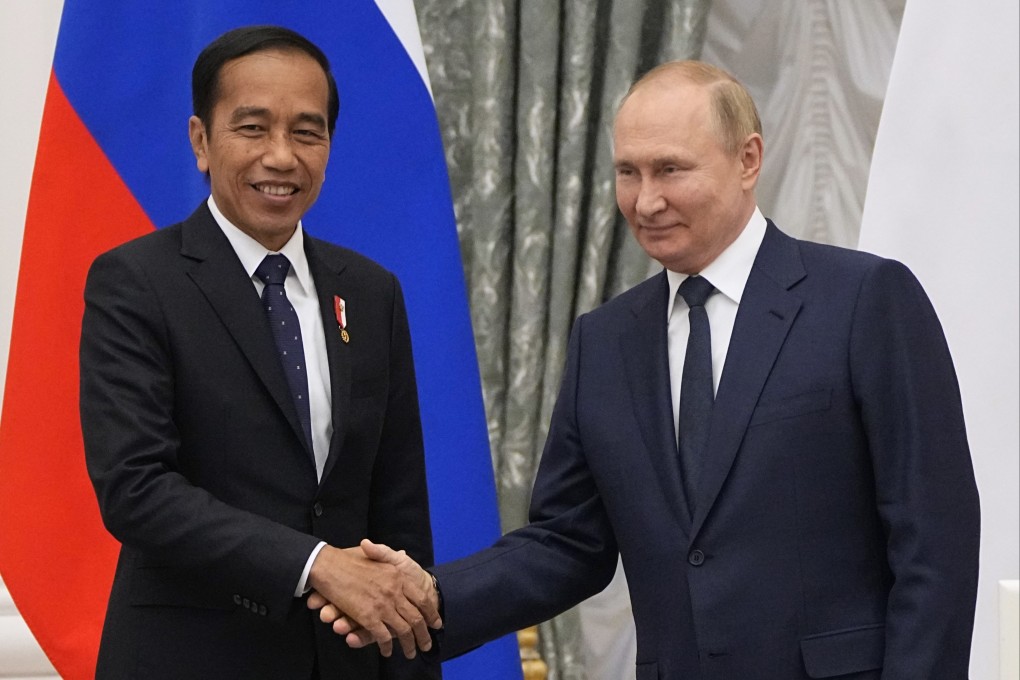Indonesia’s Jokowi met Putin and Zelensky to try to end war and reduce global food crisis. What did he achieve? Or was it Russian propaganda bonanza?
- President Widodo’s ‘peace mission’ to Moscow and Kyiv, the first visit by Asian leader since war began, shows nation’s foreign policy, analysts say
- But they also wonder if Indonesia is ‘naive’ in being ‘willing’ to be ‘toyed’ with by the Kremlin and if Widodo’s trip was to help cement his personal legacy

The Indonesian president also said he gave a message from Ukraine’s President Volodymyr Zelensky to Putin and said he “was ready to help establish contact between the two leaders’’ to ensure a move towards “a peace settlement and an open dialogue”.
Neither side elaborated on the message’s content. Widodo met Zelensky in Kyiv on Wednesday, becoming the first Asian leader to visit Ukraine since the war began in February.
“In conclusion, I want to say that Indonesia has no other interest than a desire for the war to end as soon as possible and for food, fertiliser and energy supply chains to be restored immediately because this is affecting the lives of hundreds of millions and even billions of people,” Widodo said during a joint press conference with Putin.
